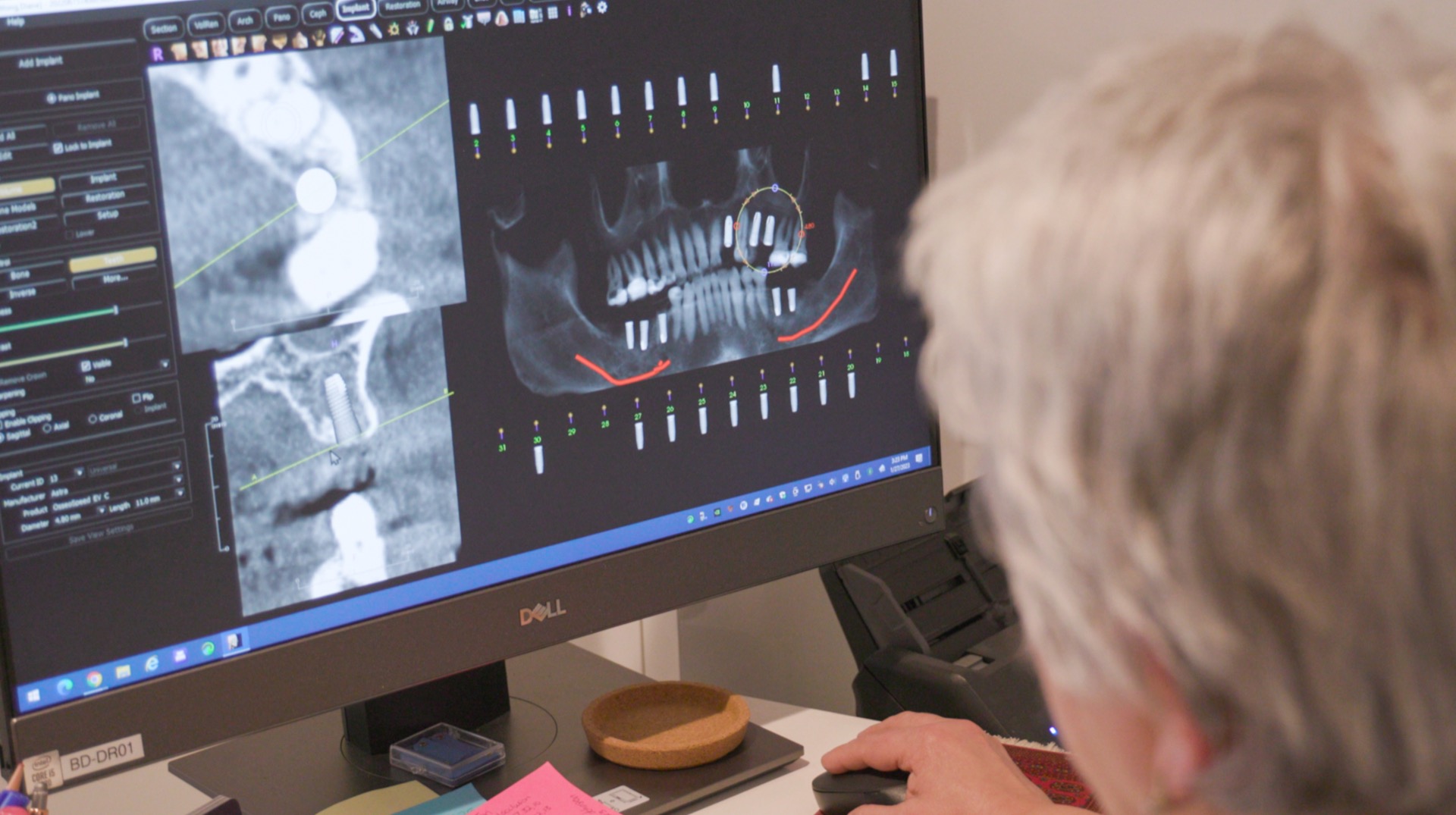
Dental Care Tips for Seniors to Maintain Healthy Teeth and Gums
Did you know that over 68% of older adults suffer from gum disease, and almost 20% have untreated cavities? According to a study in 2014, 89% of older adults need some form of dental treatment, and yet only half of them seek dental care.
Oral health and the resulting health problems are serious risks for older adults. Regular dental appointments are an important piece to maintaining healthy teeth and gums, but the majority of long-term dental care is done at home. Below are some dental care tips that seniors should apply to their daily routine right away.
This article is a shortened version of a Caring.com Guide to Seniors and Dental Health.
Warning Signs of Unhealthy Teeth and Gums in Seniors
Whether you’re a senior yourself or you have a senior you care for, knowing signs of unhealthy teeth and gums is essential. You need to know when it’s time to get dental care because leaving problems untreated will make them worse. Some warning signs to watch for include:
- Tooth pain: Tooth pain is one of the first signs of a problem. This pain can come from tooth decay, gum recession, lesions and even from food stuck in the gums.
- Bleeding gums: Bleeding indicates inflammation of the gums. If it happens regularly, it may be a sign of gum disease. It can also be a sign of other health concerns, such as anemia and diabetes.
- Receding gums: If the gums are pulling away from the teeth, it can indicate gum disease. This issue can also cause increased sensitivity of the teeth, causing pain.
- Difficulty moving the jaw or tongue: If the jaw or tongue is causing pain, it may be due to an oral health problem, such as an infected salivary duct caused by bacteria accumulation in the mouth from a decaying tooth.
- Bad breath: Everyone has bad breath from time to time, but if brushing and flossing don’t solve the problem, it can indicate a more serious issue.
- Change in the fit of dentures: If dentures start to fit uncomfortably or differently than they once did, it may be a sign of an oral health concern. This may be due to swollen gum tissue.

Oral Hygiene Tips for Seniors
The CDC reports that people aged 65 and over have a high risk of tooth decay, gum disease, and tooth loss. Many seniors lose dental insurance after leaving the workforce and may not secure routine care coverage through a supplemental Medicare program; however, dental care is essential for both oral and overall health as people age.
Daily Dental Routine
Follow the tips below one establishing a dental routine and healthy lifestyle to ensure you’re doing everything possible to maintain your dental health.
Brushing
- Brush twice a day with a soft-bristled brush for at least two minutes.
- Choose an electric toothbrush if joint weakness makes brushing uncomfortable.
- Increase your fluoridation by using toothpaste with added fluoride.
- Use toothpaste for sensitive teeth to ease pain if you have cavities or gum disease.
Flossing
- Floss at least once a day since plaque can build up more quickly on older teeth.
- Use hand held flossers, water flossers, or interdental brushes to make flossing more manageable.
- Ask your dentist or hygienist to explain correct flossing procedures if you have a bridge or other dental hardware.
Mouthwash
- Use an antibacterial mouthwash at least once a day.
- Choose alcohol free mouthwashes with added fluoride.
Dentist
Visit your dentist every six months for continued oral health care.
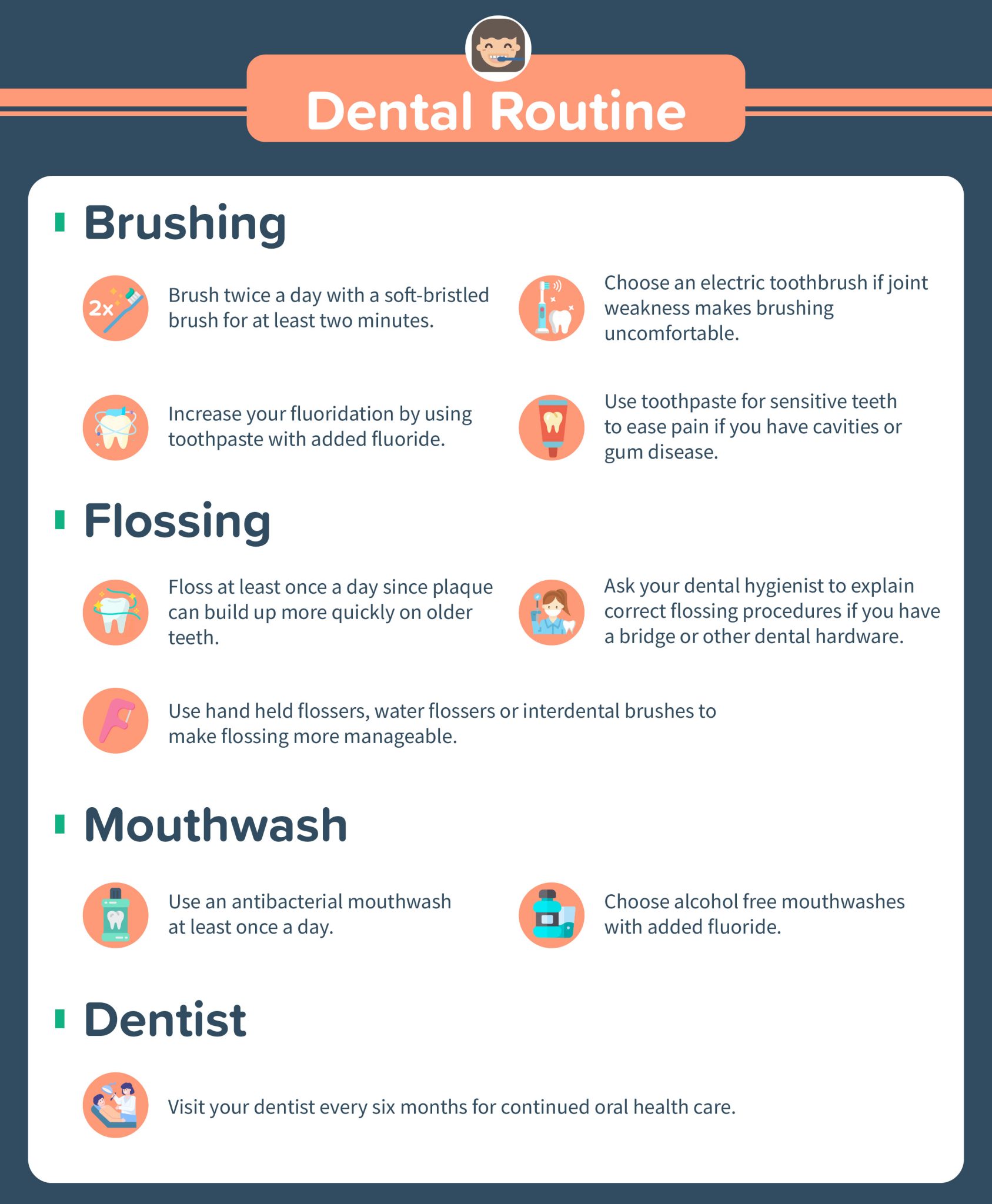
Diet & Lifestyle
The key to maintaining healthy gums and teeth starts with a healthy lifestyle and diet.
- Have more calcium to strengthen teeth.
- Drink more water to combat dry mouth.
- Enjoy sugar-free gum, which combats dry mouth.
- Avoid smoking and chewing tobacco, which can discolor and damage teeth.
- Avoid sugar, especially sugary drinks, which can cause cavities.
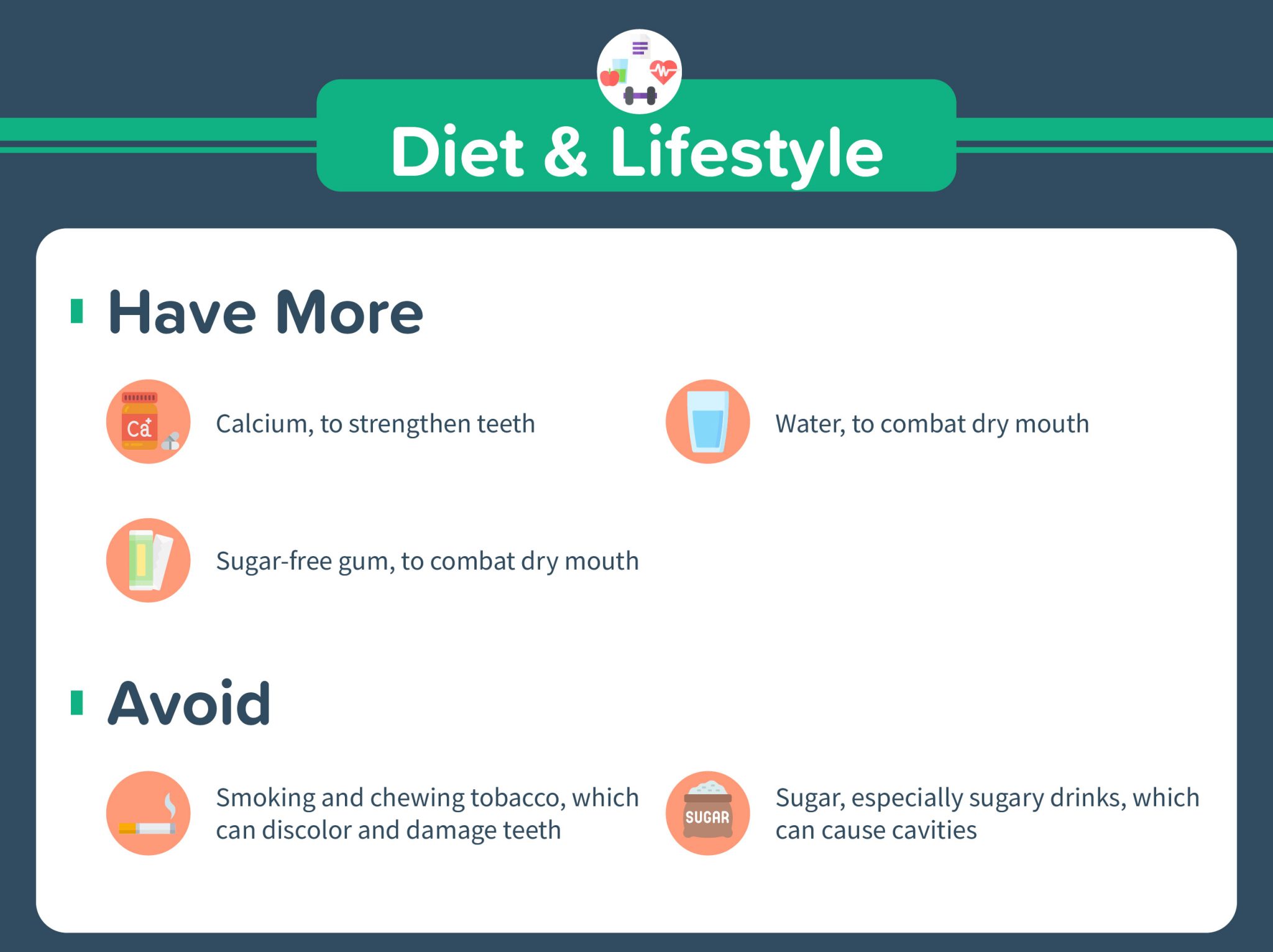
Dental Care – Denture Do’s
- Put a towel in the sink when cleaning dentures so the dentures won’t break if dropped.
- Remove and rinse dentures after eating to remove food debris.
- Brush dentures daily using a denture brush and non-abrasive denture cleaner to keep them clean.
- Soak dentures overnight in water or denture cleaning fluid to remove bacteria and ensure fresher breath.
- See your dentist regularly to check the fit and have your dentures professionally cleaned.
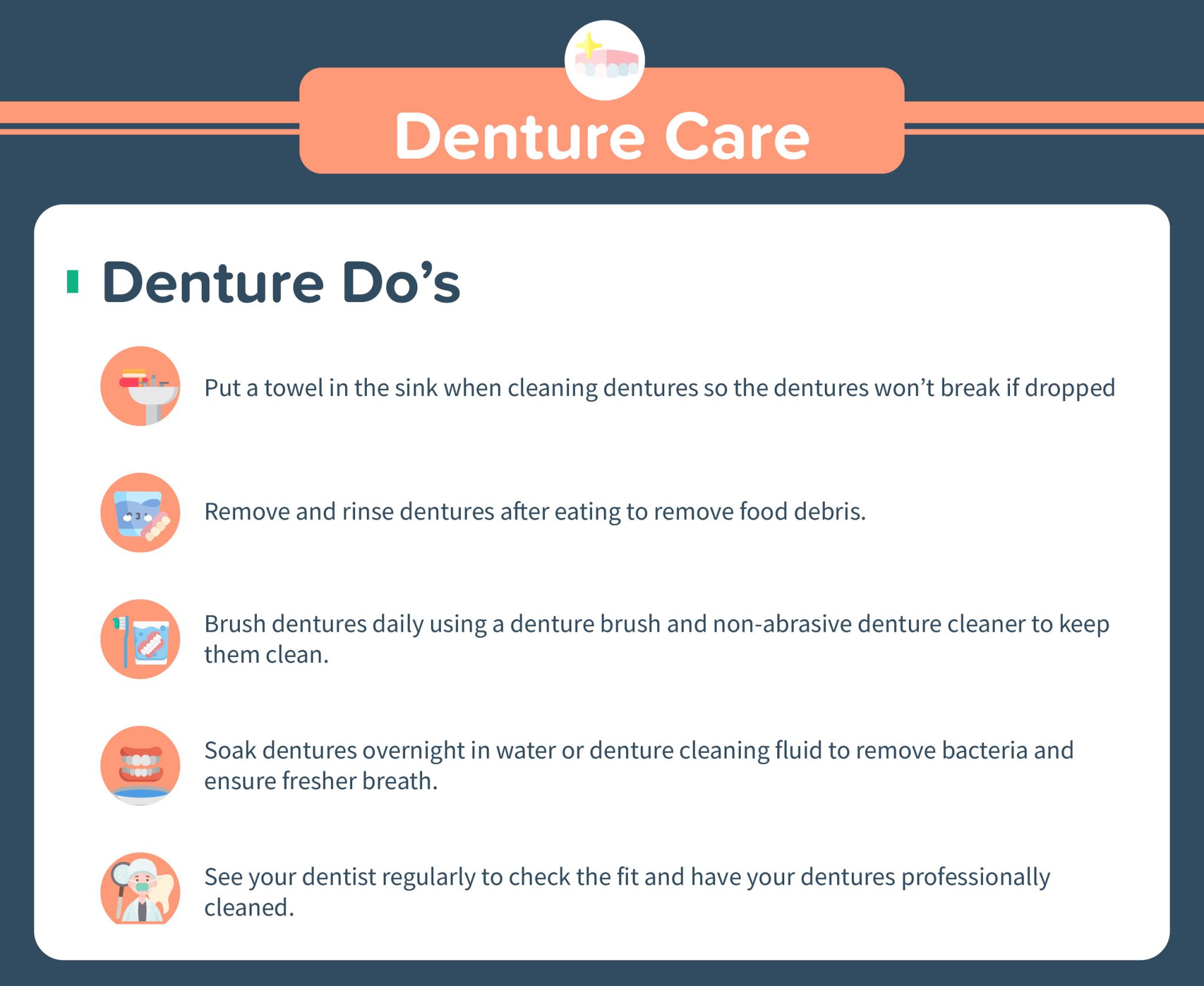
Denture Care Dont’s
- Avoid abrasive cleaning materials such as stiff-bristled brushes and strong cleaners.
- Don’t use whitening or bleach-containing products for cleaners.
- Choose cold, not hot or boiling, water as it can warp your dentures.
- Don’t use denture cleaners in your mouth, as they can cause vomiting, pain, or burns if swallowed.
- Don’t ignore problems. If your dentures are loose or causing any irritation, see your dentist as soon as possible.
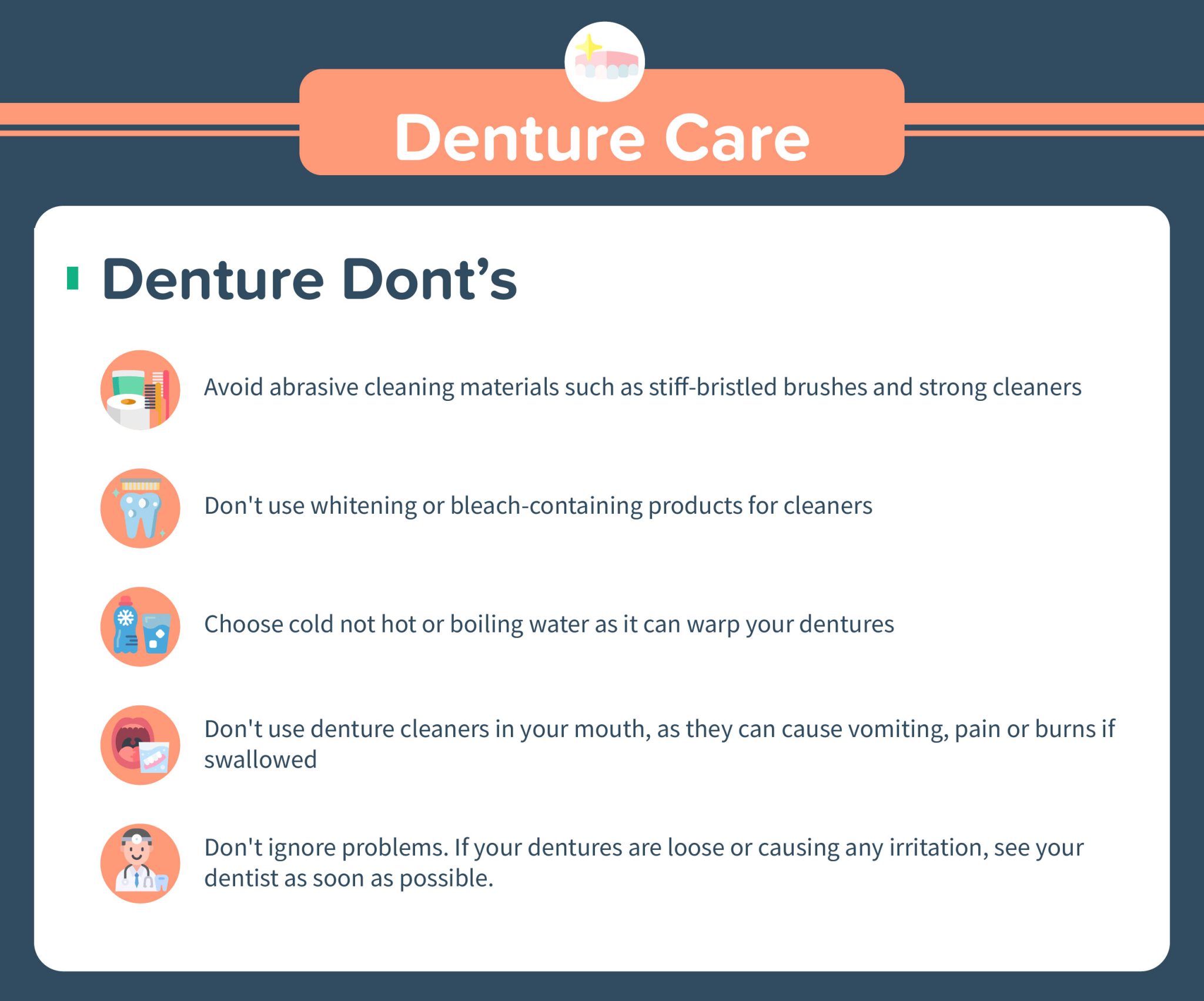
When Is It Time to See a Dentist?
Seniors should have routine oral care checkups twice a year, but problems can still arise outside of these parameters. It’s time to see a dentist when a senior experiences:
- A tooth that breaks.
- Tooth or gum pain that isn’t relieved after a day or two.
- Sores in the mouth that don’t heal within a week.
- Gums that regularly bleed.
- Sudden discoloration of the teeth.
- Dry mouth.
- Teeth that fall out.
- Discomfort from dentures or other oral appliances.
If you have any questions or would like to make an appointment to discuss your dental health and daily routines, please give us a call!
